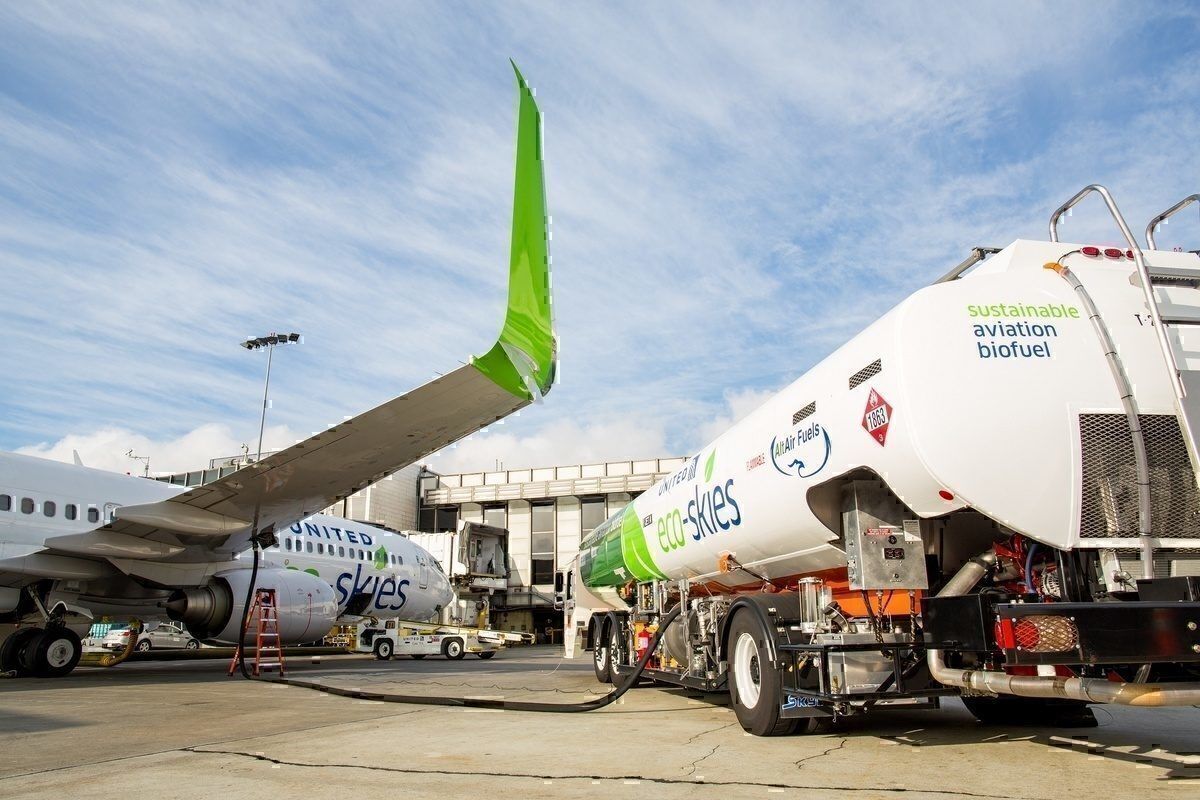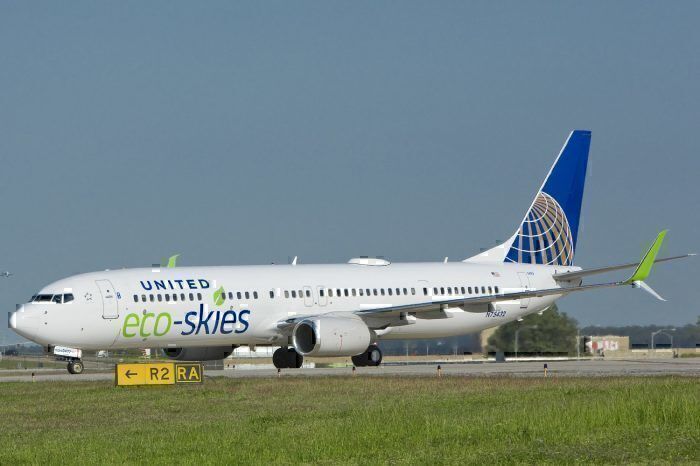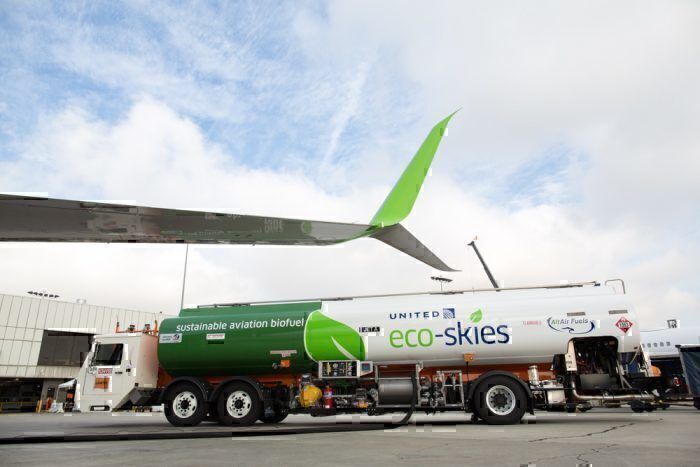United Airlines have now given air passengers another reason to “Fly Friendly Skies” after becoming the latest airline to trial BioFuel.
Dubbed the "Flight for the Planet”, Flight 310 from Chicago to Los Angeles on Wednesday was all about the future. They wanted to promote not only how airlines can fly using BioFuel, but reduce their impact on the environment as well.
Flight for the Planet
Using a Boeing 737-900 painted with its eco-skies livery for its "Flight for the Planet'' journey, the aircraft was powered using 70% jet fuel and 30% BioFuel made from agricultural waste.
Instead of using both engines when taxiing, pilots on flight 310 used a single engine to reduce fuel consumption. On approach to Los Angeles’s LAX, rather than using the normal stair-step method, the pilots went with a continuous descent approach, saving fuel and cutting down on aircraft noise.
For the parts of the flight where they did not achieve zero emissions, United purchased carbon offsets.
Eco-friendly cabin
Doing something the airline had not done in years on a domestic flight, passengers in economy class were treated to a meal rather than the usual pretzels or peanuts.
Playing along with the eco-friendly theme, fliers had the choice of a kale superfood wrap, cheese plate or Thai summer salad with mango and rice noodles. All meals were served using compostable plates and cutlery along with recyclable paper drinks cups.
In, first class, passengers were treated to a healthy meal covered with a wrapping of beeswax, rather than the usual plastic.
The idea of using either recyclable or compostable materials for food and drinks was part of a plan to obtain zero cabin waste on all United Airlines flights according to USA Today.
Flights on average have about 65lb or (29.48k) of rubbish removed from the aircraft after each flight. On Wednesday’s flight, United got this figure down to just 14lbs, all of which belonged to the 161 passengers on-board.
When speaking about the initiative prior to the flight, United president Scott Kirby is reported by Aviation Benefits as saying,
"The historic Flight for the Planet showcases United's philosophy of working together to find new and innovative ways to lead us into a more sustainable future. As an airline, we see our environment from a unique perspective every day and we know we must do our part to protect our planet and our skies. Sustainability and our environment is something I've cared about for many years, going back to my days in college.''
What is BioFuel?
BioFuel is generally the term used to describe a fuel produced from quick-growing plants that give it the ability to be called renewable energy.
The reason airlines have been slow to adapt to BioFuel is that it has low energy per unit mass. This can limit an aircraft’s range due to the weight of the fuel. Jet fuel or aviation fuel is comparable to kerosene and has a higher energy mass than Biofuel.
What this means is that if BioFuel is to compete with fossil fuels it must first become more efficient. Research into the use of biological organisms for powering aircraft are on-going but according to BioFuel.org are more of a curiosity than a practical alternative to jet fuel.



